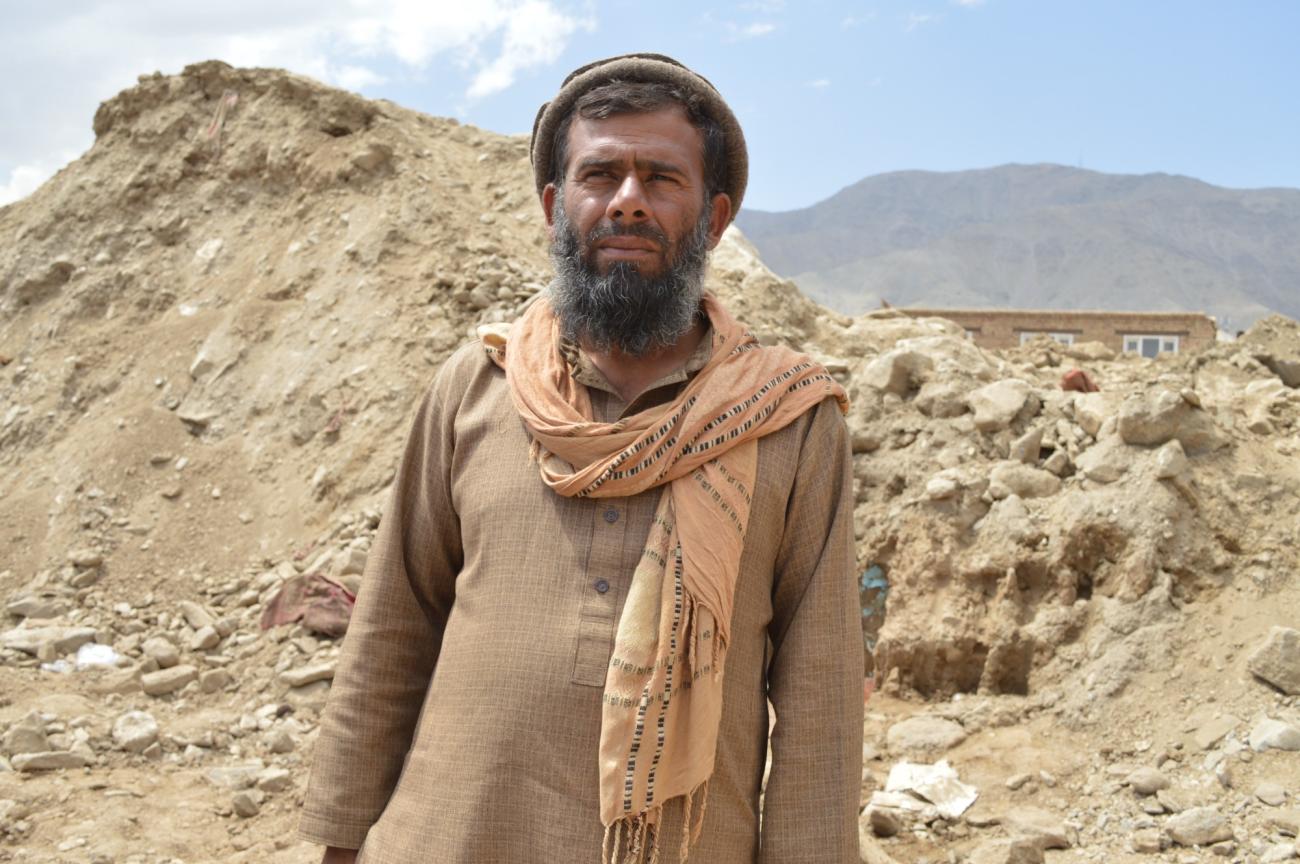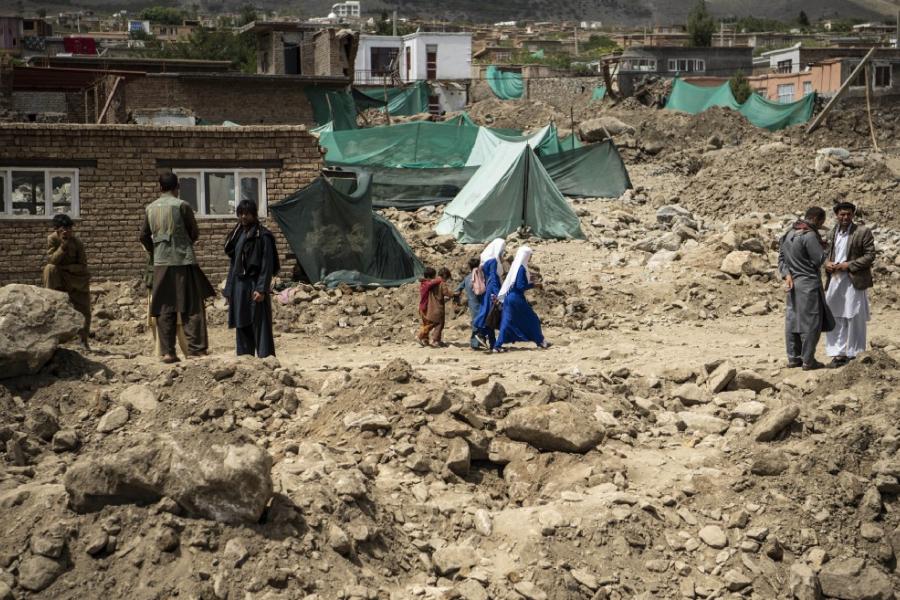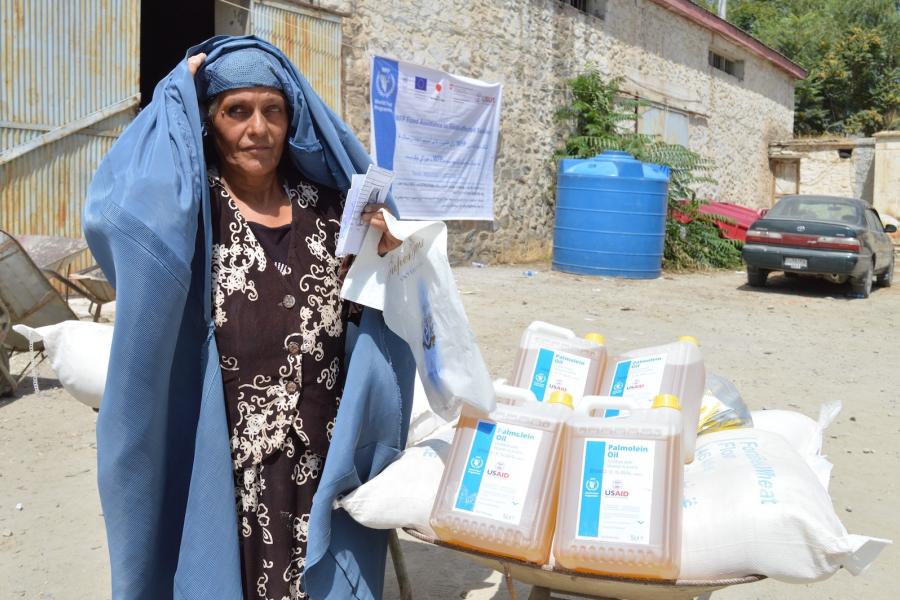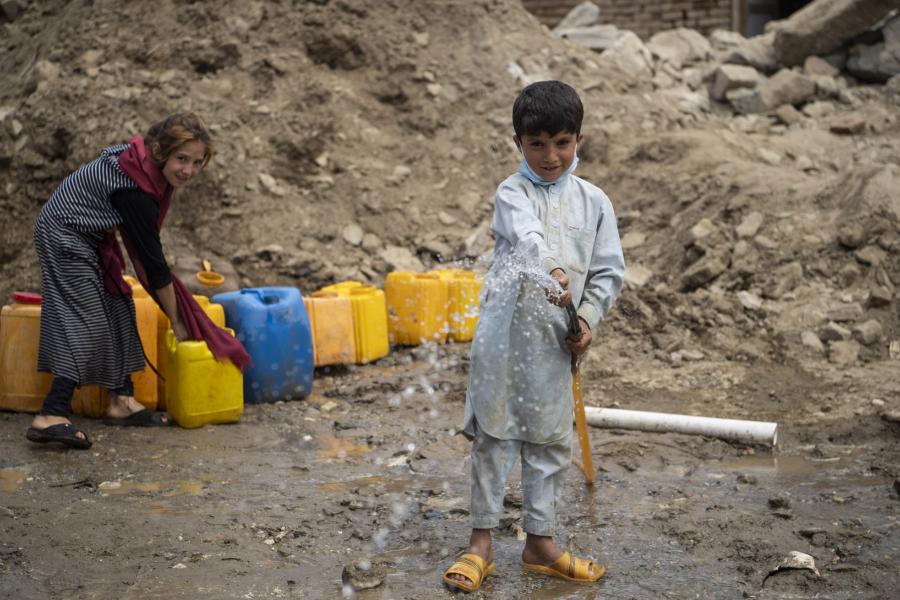‘My family was destroyed’: Flash floods devastate community in Afghanistan

WFP provides support after unimaginable loss
When Hamid Agha returned to the site where his family’s house once stood in central Afghanistan, all he could see was a hill of mud. Everything had been washed away by rains and floodwaters. Most tragically of all, ten members of his family had been lost.
“My children were screaming for help, but I was buried under the bricks and couldn’t move,” Hamid’s voice trails as he recalls the night of Wednesday 26 August, when rains started pouring at around 2 am and quickly turned deadly while locals in Charikar, capital of Parwan Province, were all asleep.
“I heard a horrible noise,then found myself being swept away, along with all the debris and rubble. By the time I had drifted past the neighbours’ houses, I could still hear the children’s screams.”
“Some people pulled me out of the water, far away from my home. I immediately started running back to the house to save my children. But when I got there, everything was already buried under mud, rocks and brick.”
In a matter of just minutes, Hamid lost ten members of his family — his wife, five children, three grandchildren and his daughter-in-law. “My family was destroyed,” mourns the grieving father.

In respond to the Government’s request, WFP, along with other humanitarian organizations, distributed food to families who had suffered devastating loss. In Parwan Province, nearly 7,000 people have received two months’ worth of fortified wheat flour, vegetable oil, pulses and iodized salt. Children under 5 and pregnant and breastfeeding mothers are also receiving specialized nutritious food to prevent malnutrition.

Bi Bi Halima, another resident of Charikar, feels blessed that she and her family survived the disaster.
“It was around three in the morning when I was woken up by the sound of water,” she recalls. “I went to the gate to see what was happening outside and saw water rushing into the yard. I ran back inside to wake up my husband and our three daughters. When we tried to escape, the water was already in the house. Thank God our neighbours came and helped us out.”
The assistance she received from WFP has been critical time for her family: “We lost our house and all our belongings. Right now, we cannot even buy a box of matches. This food is very important for us and will help us survive.”

Before the floods, Bi Bi Halima sewed quilts, using the money she earned to pay her rent. Her husband sold sweets on the street. Their only son has a drug problem and cannot work. She has not been able to restart sewing yet, while her husband fell sick the night after the flood. The food from WFP is all they can really count on at this time.
To date, 15,000 people have received food in Parwan and four other provinces affected by the floods, which came at a time when the country was already grappling with the impact of COVID-19. WFP plans to reach an additional 3 million people by the end of this year, who are affected by increasing food insecurity exacerbated by loss of jobs and income imposed by the pandemic.
WFP’s assistance to families like Bi Bi Halima’s and Hamid’s was made possible thanks to the generous contributions of WFP’s donors, including the Afghanistan Humanitarian Fund (AHF), European Civil Protection and Humanitarian Aid Operations (ECHO), Japan, Switzerland and USAID’s Bureau for Humanitarian Assistance.






